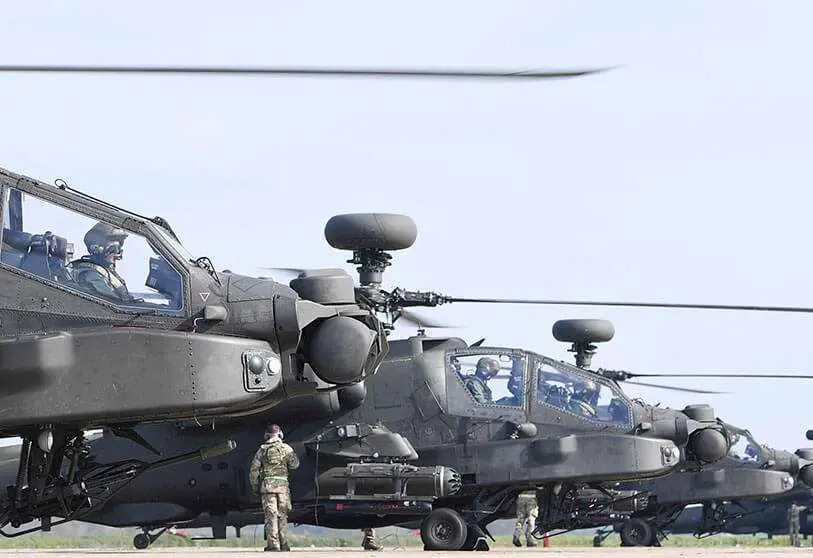The hypocrisy of the arms lobby in the Spanish-Maghreb conflict

The Spanish arms lobby is increasingly involved in the conflicts affecting North Africa, from Mauritania to Egypt, and in the potential conflict that could arise between Spain and some of the countries in the region, particularly Morocco.
Spain is by far the superior military power to both Morocco and Algeria. The annual Global Firepower 2021 Index ranks Spain 18th, Algeria 27th and Morocco 53rd, which excludes a war scenario as possible in the short to medium term.
Another aspect, however, is Spain's sovereign positions in North Africa, which are militarily indefensible unless it enters into open conflict with the potential aggressor, Morocco in the case of Ceuta and Melilla. However, for Morocco, which continues to have "the recovery of the two cities as a historical claim", recourse to military action of any kind is excluded. The Alawi kingdom has had, has and foreseeably will have in the future a recovery strategy based on negotiation, co-sovereignty and common Spanish-Moroccan socio-economic agreements for the entire region.
Spain's involvement in the Maghreb conflicts is shown in its arms sales to all real or potential contenders. The arms lobby knows that the North African market is very juicy; and although for the moment it is among its second-tier clients, the race undertaken by Algeria and Morocco to obtain military supremacy over their rivals leaves important spaces for the sale of military equipment to Spanish consortiums.
Spain has moved up to eighth place in the list of arms exporting countries. According to 2020 data from the Stockholm Peace Institute, the US continues to lead with 37 per cent of the total, followed by Russia with 20 per cent. Next on the list are France (8.2%), Germany (5.5%), China (5.2%), the UK (3.3%) and Spain (3.2%, ahead of Israel (3%) and Italy (2.1%); and Turkey, which ranks 14th in the list of world exporters.
In 2012, there were 562 companies in Spain involved in defence and arms production, mostly in the naval, aeronautical and land vehicle sectors. It should be noted that the quantitatively most important defence sales are basically concentrated in a small group of half a dozen companies made up of: EADSCASA, Navantia, Airbus Military, Indra Sistemas, Santa Bárbara Sistemas, AEXPAL and the missile company MBBDA, which account for more than 85% of these sales. Five years later, the number of companies was still similar (578), and defence sales stood at around 6 billion euros.
However, Spanish arms exports grew spectacularly during this period, increasing by 400%. If in 2010 they were around 1.1 billion euros, in a few years they rose to more than 4 billion euros, a figure that was maintained in general until 2019 when the pandemic was declared and exports fell.
This growth generated a wave of appointments of senior state officials, ministers, directors general, secretaries and undersecretaries, and retired senior military commanders, who turned to the arms industry and military export associations. According to researcher Pere Ortega, at least 35 generals and high-ranking government officials have landed in the sector. A real lobby was thus formed which, thanks to their personal "agendas", made it possible to obtain juicy contracts at the international level.
This arms lobby has set itself the goal of establishing links with the "fifth power", the media, through which it has stimulated the ideas that "we are in danger", "Morocco is threatening Ceuta and Melilla", "the Israelis are breaking the Spanish-Moroccan balance in favour of Rabat", "Morocco acquires weapons that give it superiority over Spain", "the US is going to move its base from Rota to Morocco", "the Algerian and Moroccan navies break the 'status quo' in the Strait of Gibraltar, leaving Spain cornered", and so on.
However, at the same time that they warn of the "Moroccan danger", they are a privileged supplier of ammunition, mortar shells and plastic explosives, as well as chains of tanks and aircraft spare parts. This lobby puts pressure on the government of the day, both popular and socialist, to acquire missile systems and submarines, while it does not hesitate to sell Morocco an Avante-class offshore patrol boat built by Navantia, worth around 150 million euros, in the hope of being able to sell more to the 'enemy'.
The greater the tension between Algeria and Morocco, the greater the "danger to Spain", and the greater the juicy buyer market. The Spanish arms lobby feels independent of the state, and capable of influencing regional geopolitics. This is its ethical and moral hypocrisy.

